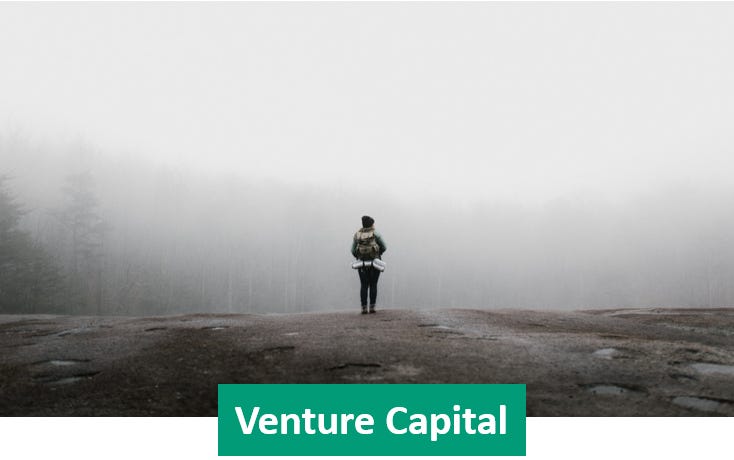Automatizing Venture Capital

Photo by Andrew Neel from Unsplash
VC investment process is slow, selective and redundant
In recent years, VC funds has been dealing with an increasing number of startups. From the sourcing till the closing, a startup is going through an extremely selective investment funnel. The figures can vary from a fund to another, but the order of magnitude is a few thousand investments opportunities identified for less than ten deals. Indeed, looking for new disruptive startups can be tough.
“To succeed in venture capital you must be one of the top five firms. And to get there, you must have amazing deal flow” — Mark Andreessen 2016
The work differs regarding the position held in a VC fund, but roles and responsibilities can be segmented that way:
Sourcing new deals
Analyzing opportunities and Due Diligence
Closing deals & negotiating terms
Board participation & follow up
The analysis is that Venture Capital has change with the market (new technologies, new needs, new investment opportunities), but it seems that its core processes hasn’t change that much in decades.
Investors are biased
On top of that, VC investment process is often even biased. In fact, a lot of venture capitalists suffer from common psychological biases. It can be overconfidence, halo effect (how similar this company is to previous exits I had?), confirmation bias (accepting information that support pre-existing beliefs), information overload (meaning that more information often leads only to greater confidence and not to greater accuracy), and many more.
It means that the decision making is influenced and thus not necessarily the most accurate.
“Given then the incredible degree of uncertainty that this business embeds, it might be worth to look for some external help — let’s say a more “automatic” one “ — Francesco Corea 2018

Photo by rawpixel from Unsplash
Do you need ai-d?
Of course, AI won’t replace human in the decision process. But instead, we can foresee the use of AI. Considered as an assistant for the investors throughout the whole investment process, AI could automatize tasks, saving time for the VCs to perform other strategic activities.
Hereunder are some ideas (short and long terms) that could be implemented to disrupt VCs:
Enhance the sourcing:
Scrap the web (scientific papers, press, patent, .. ) to detect low signals : trends, interesting compagnies, new technologies, ..
Suggest automatically a list of compagnies to contact, based on information collected online
Fulfill and update VCs CRM regularly
Improve strategic analysis in Due diligence:
Obtain key indicators and metrics by scouting articles, papers, resources to validate the 5Ts:
Team: Team background assessment on previous experiences and LinkedIn
Tech: Detection of experts to set up interviews
TAM: Estimation of the addressable market
Traction: How many people mention the startup, website statistics, ..
Trenches: Assess competition and defensibility
Predict growth and return on investment of a startup in a specific market and geography with new tools
Ease and speed up document redaction:
Generate the backbone of :
A term sheet to accelerate its sharing to the rest of the investment team
Legal papers related to a deal
Closing deal papers
Structure insights about a specific topic in a market analysis
Numerous actors are leading the way
Artificial Intelligence or simply said automation, has started to gain interest in a few VCs. The added value is clearly perceived: AI can optimize time spend on tasks to increase the deal flow and therefore the number of investments. If VCs were startup, we could say AI can build an unfair advantage.
A few VCs already started their shift toward automatization and therefore AI. Knowing exactly what they do is quite impossible without having inside information but a few articles report the increasing traction of such AI technology and its positive impact on the VC’s deal flow.
Finally, we’ve seen the emergence of an interesting VC fund which is completely led by an AI. This so-called VC fund is said capable of deciding whether it should invest in a startup, based on a pitch deck. Beyond the humorous aspect of this hoax, this proposal of a virtual venture capitalist raises questions. Could the choice of an artificial intelligence as decision maker for project financing be viable?

Photo by Gladson Xavier from Pexels
Is there a market for innovation?
It seems that VCs are willing to have assistance (with new AI powered tools), but is there an addressable market big enough for startup to develop those tools?
On top of that, I can perceive three types of competitors for new comers which are:
Current providers of software solution (CRM and Sourcing databases) that could develop new features dedicated to the list of improvements hereabove.
VC fund themselves which are building up their own personalized solution
Traditional fundraisers which bring qualified deals to VC fund
In my opinion, the current providers of software solution have a huge business opportunity. By leveraging on their global network of clients (either in VC, PE, M&A, ..), they could offer a premium license for specific AI tools. Furthermore, their network is a barrier to the entry for new comers, because in a niche market like VC you are hunting mices and not elephants.
On the other hand, investment funds are increasingly developing inhouse tailored made solution. But the money and time required to develop and update such tool, plus the complexity associated with the multiplication of tools is contrary to the initial purpose of the adoption of AI: simplicity and time saving. Therefore, I express some doubts about the robustness of in-house tailored made AI tool over the time, compared to a tier’s solution.
Finally, fundraisers are certainly about to be disrupted as AI tools might as well suggest qualified deals to VCs.
VCs are changing in many other ways
I would like to highlight that technologies waves regularly impact VCs. Internet has, and Artificial Intelligence is one of them, but many more are to come.
For instance, one of the last hot topics is the blockchain-based model of funding that is currently being investigated. This model would alter the nature of current VC funds because by using it, VCs would be capable to syndicate deals more easily but also resell some part of a portfolio with little to no restriction. This will be interesting to watch!



